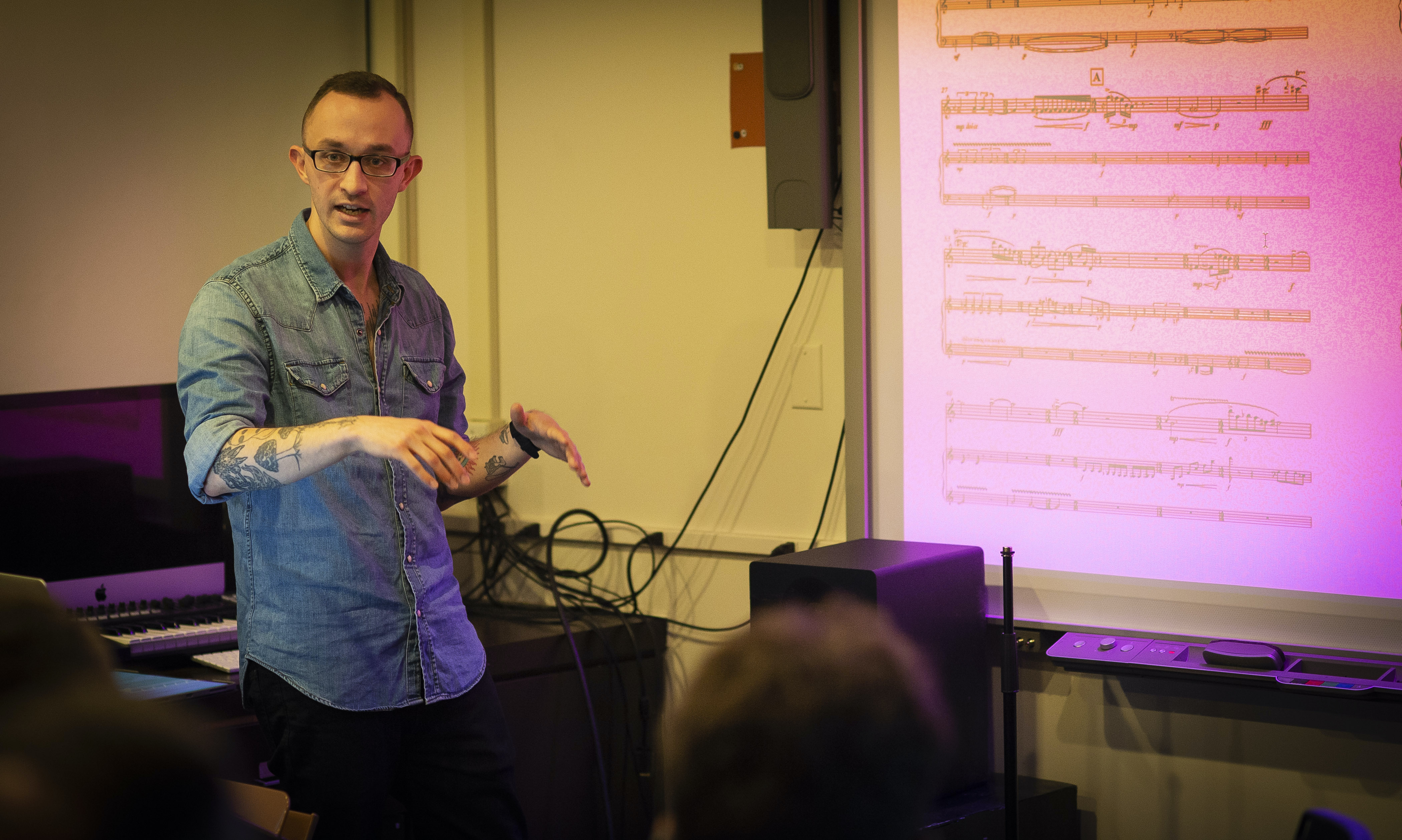Western’s PhD TA Positions and Community Building Within Teaching

By Andrew Noseworthy, Don Wright Faculty of Music, PhD Composition Candidate
Photo Credits: Andrew Noseworthy
This Fall I’ll be heading into my fourth and final (funded) year of the PhD in Music Composition degree at Western. It’s cliché to say, but the time really has gone by quickly! One of my many ongoing reflections lately has been the time spent at Western and what it means to head into the degree’s final year as a TA. When I think of all the experiences that the program has presented so far, I think the degree’s guaranteed TA position has been the most positive, influential and fulfilling aspect of the program. This experience no doubt varies between students, programs and individual TA course assignment; but on my end, the TA opportunity at Western has provided a strong foundation of classroom teaching experience within a core undergraduate music course, while also emphasizing the importance of creating a space of inclusion and support for students while teaching a university-level course.
Before elaborating further, it’s worth noting that this sense of community-building has been an ongoing aspect of my work. Before attending Western, I pursued a Masters degree at NYU Steinhardt in New York City, and previous to that I grew up in various small regions throughout Newfoundland and Labrador. My time in NYC especially enforced this aspect of my life, as upon moving there I became instantly involved with a wide group of diverse people who all possessed (among many other qualities) an overlapping set of interests, personal and professional goals, aspirations and social values. These NYC connections continue today, as a good percentage of my ongoing collaborations remain with friends and colleagues that are based there. Unfortunately, this kind-of experience was not immediate upon coming to London and beginning at Western. I don’t think this was necessarily a reflection of Western’s communal resources, but rather because a later-stage degree like a PhD mostly involves self-directed work and one-on-one courses rather than various overlapping large-group classes. Getting a grasp on building meaningful connections with my peers here was something that only began following the first year of the degree and is still ongoing now.
While I may not have felt an instant connection among peers at Western, this was all unexpectedly made up for by my experiences as a TA and teaching four weekly dictation sections of the General Integrated Musicianship course. Since this course is probably unfamiliar to non-music majors, here’s a quick explanation of what it entails! The GIM course is a multi-part, skills-based core course that nearly all music undergraduate students are required to take in the first two years. The Dictation part of the course specifically deals with ear-training techniques and gradually learning strategies that translate what you hear directly to musical notation. On both small and large scales, these skills can be critical for a musician’s success. One common issue with the course though, is that it brings together a large group of incoming students that all possess wide levels of experience in this area. The instrumental, musical, social and/or cultural upbringing of the students could mean that some already have a well-developed musical ear or theory basis; while for others, a focus on ear-training is not already a part of their practice. Simply put, teaching this course requires working with students whose relationship with the material lies at all ends of the spectrum.
My approach to this situation then, became informed by my previous experiences within diverse communities and collaborations. I learned that for students who believe they had no relationship to this course’s material, or no space within it, that making that space for them to feel engaged was the way to move forward when teaching the material. This began with regular acknowledgements in the classroom about the context in which this music operates, and that the music we study is not the only music that exists or that is even the most important. This also meant regularly acknowledging that the division in skills was due to individual experiences, not any absolute levels of knowledge, and that it’s important to validate those differences among students. Gradually, these small acts subtly allowed students to connect with the course, rather than them feeling like it was a tedious core subject at which they could never succeed. This then grew into outside-of-class discussions with students on the material, but also on other aspects of their degree and artistic life. Everything from ongoing gestures like regularly chatting with students about possible career paths, or seemingly simple steps such as including my pronouns in email signatures, gave students the safe space they needed in what might have been an uncertain environment.
For me personally, giving students that space to feel like their experiences were respected eventually grew to create a sense of community that, at the time, I felt was lacking among my graduate student peers. This eventually led to further engagements with current and past students, both artistically and also regarding the ongoing social issues in our field. Now approaching the final year of the degree’s guaranteed TA position, I can say how grateful I am for the community that this job has allowed me to be a part of. Teaching this course gave me the opportunity to engage with diverse students in deconstructing commonly shared personal and professional issues for musicians, and then implementing it within my own teaching practice. I’m thankful today that this experience led to a fulfilling, though unexpected, sense of community within the school.
Published on

